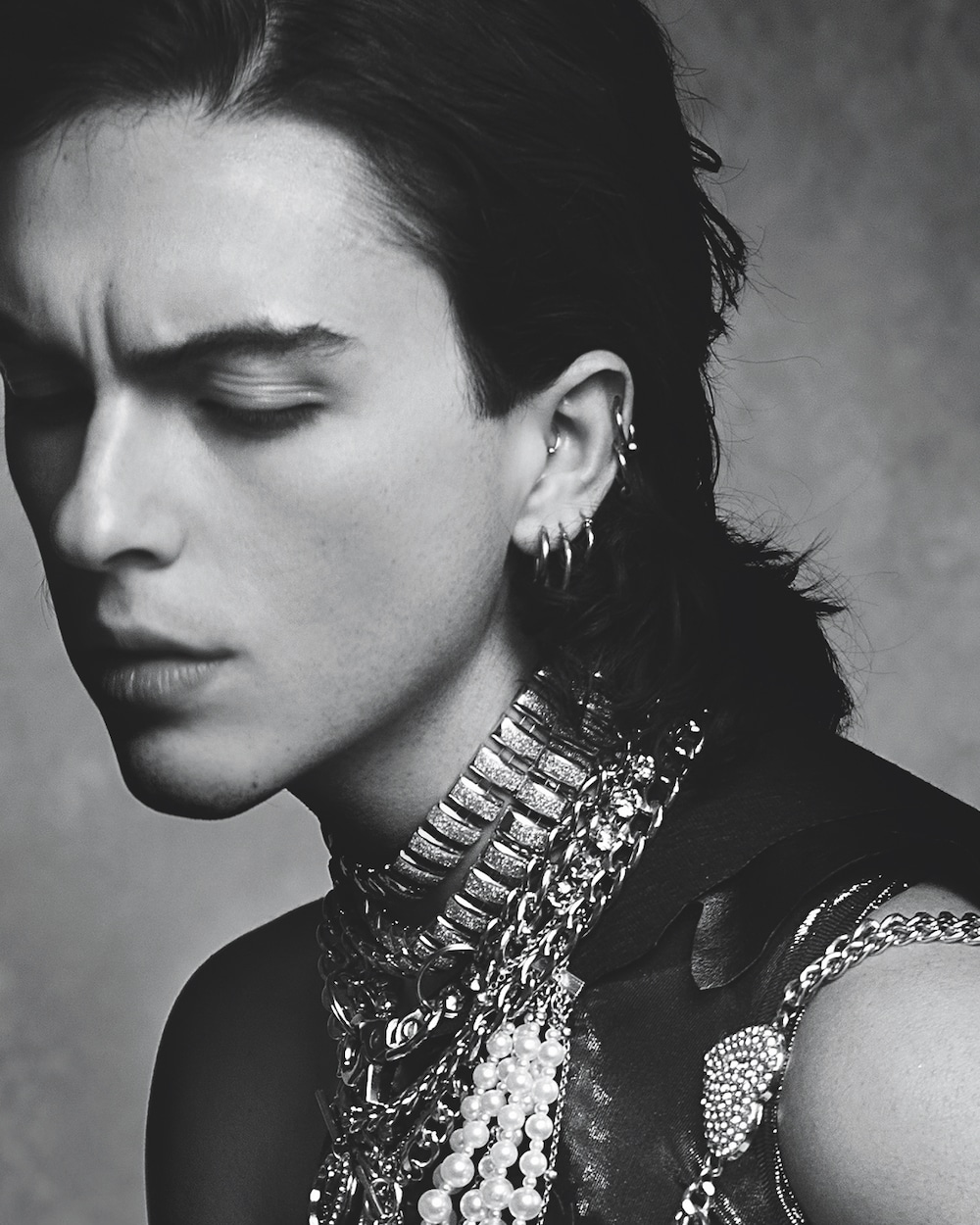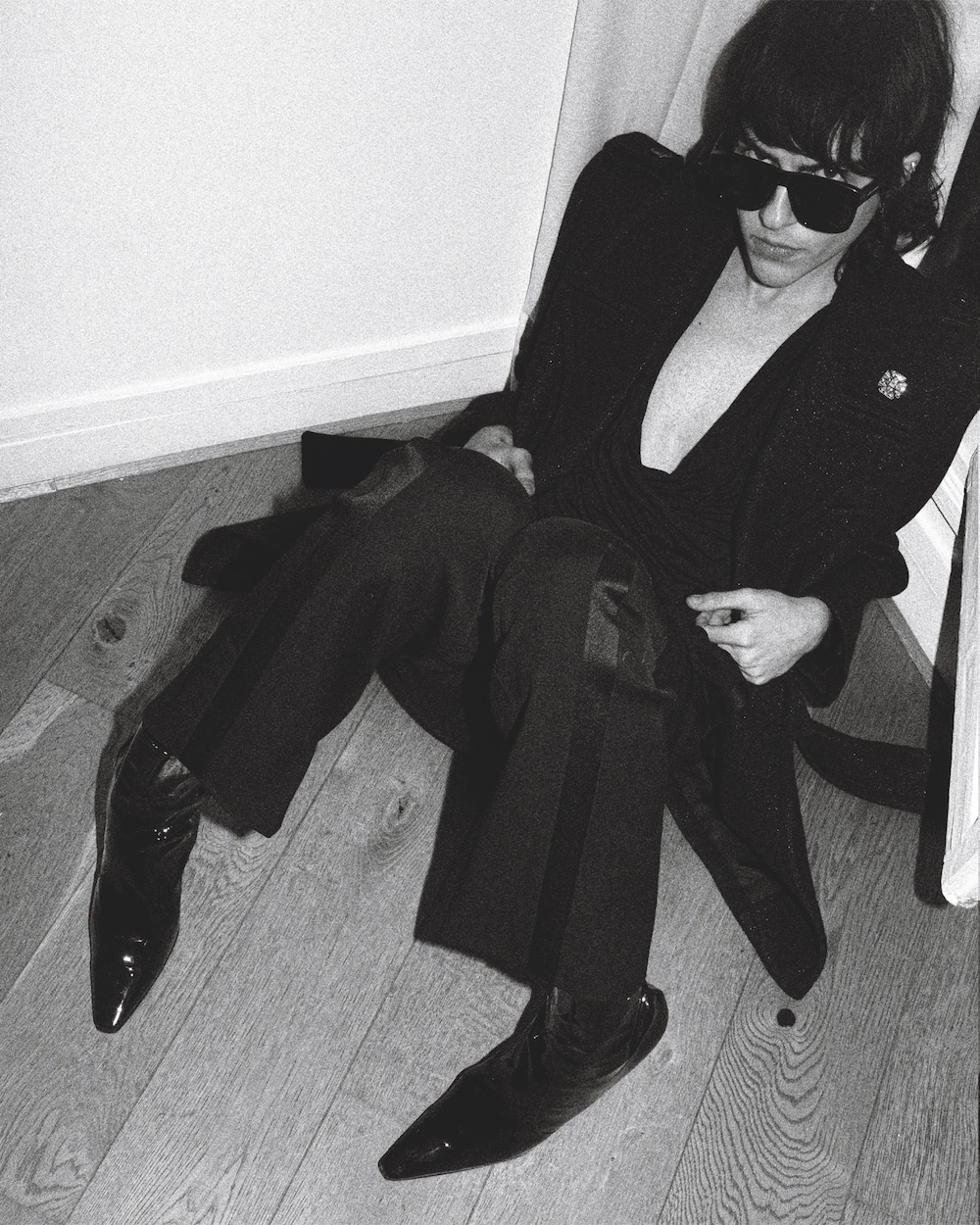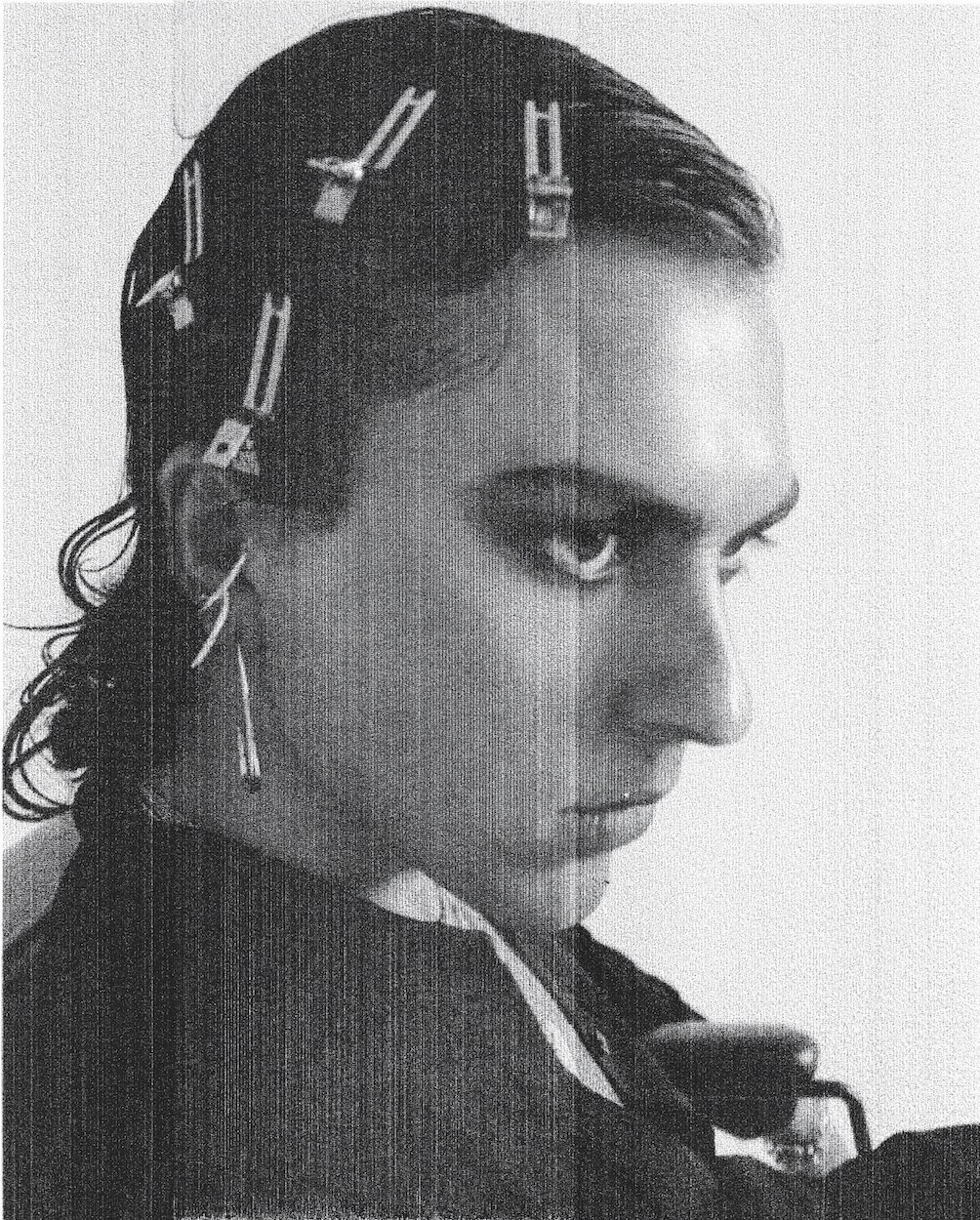“For me, the ideas of gender have always felt irrelevant in so many ways because I’ve trivialized them since I was so young.”
“For me, the ideas of gender have always felt irrelevant in so many ways because I’ve trivialized them since I was so young.”

MARIEN BRANDON: In what direction do you personally think men and masculinity will evolve toward in the future?
TYLER OMEED MAZAHERI: This may be an overly-optimistic take considering the sort of progressive social vacuum I exist in — but in my eyes, ‘masculinity’ and ‘femininity’ are becoming such muddy concepts as the ideas of both continue to expand and become ever-enmeshed and overlapping with one another. Of course queer people have been way ahead on this but now it’s finally reached the mainstream (the straights). For example, we’re seeing things like painting your nails and wearing tight-fitting silhouettes as a new accepted standard for men across all identities, because people are finally coming along to the idea that traditional codes of what it means to be a ‘man’ or ‘woman’ are antiquated and repressive. My hope is that, as long as this mentality shift continues, eventually everyone will be able to interact with each other on a person-to-person basis, rather than man-to-woman, or vice versa.
How do you personally approach your masculine side in your day-to-day life? I believe it is something you playfully experiment with.
Over the past couple of years, especially since I moved from Arkansas, it’s been amazing to have the personal liberty to fully delve into my feminine ends and be able to be more playful about it. I’ve never considered myself to be necessarily high-fem in the way that I dress, but I like exploring the in-between area and juxtaposing things that may be considered more one or the other. I have never felt super at home with strict masculinity or femininity. So, whenever I’m dressing myself, I feel there has to be a combination. If I’m ever dressed too masculine, I sort of feel like a tomboy, in a weird way; like a girl dressed up as a boy which doesn’t make sense. It’s tricky sometimes, for example – I just got off of three back-to-back seasons of fashion weeks and it’s been interesting being in those sorts of spaces and having to navigate and sometimes compromise depending on if it’s a menswear season versus a womenswear season. But regardless, I’m just happy that I’ve got to carve my own space in this industry.
On another note – I feel like I’m just now beginning to explore my masculinity in a lot of ways. Growing up, I was always told I was ‘pretty’ but never ‘handsome’ so I naturally felt more feminine by default. But because I’m half-Persian and 20-something, I’m starting to see things like my shoulders broadening and my face and body hair coming in thicker so I’m having to grow into these newly more masculine attributes. It’s funny because I feel like a lot of people around my age who grew up conforming to one gender are now on this journey of exploring their androgyny, and now here I am having to do the opposite.

Being of Persian descent also probably shaped your masculinity in a particular way, as each culture has different sets of rules and expectations attached to the concept of masculinity. Is it something that you thought about when allowing yourself to be playful with your masculinity? Do you ever feel typecast because of it?
I’m very proud of my Persian side, but as much as I would like to be somebody who can be a spokesperson, I’ll be honest – I grew up in a very whitewashed household. It wasn’t until I hit college that I tried to reclaim that side of my culture, because I grew up in the void of it. My dad definitely kept his culture more to himself when I was growing up, but it’s been really gratifying, given the position that I am in, to have a growing Persian audience supporting me. My existence is very taboo as somebody who’s genderqueer, has tattoos and is openly gay. Everybody always asks me if I ever go home to my other side of the family, in Iran. It’s dangerous for me to go there, and I don’t try to avoid it, but it’s something that I wish I could have experienced firsthand so I could tap back into my dad’s side.
Regarding typecasting, I wouldn’t say I see a lot of it because of my ethnicity but more-so just being a fluid person who sometimes works in the modeling space. For me, the ideas of gender have always felt irrelevant in so many ways because I’ve trivialized them since I was so young. I often forget it’s something that’s still a new conversation for so many, and that people are still grappling with it. I’ve always been inspired by punk culture so to come from a genderfuck mentality that has an abrasiveness to it, and have to pull up to sets and be expected to play pretty in pink for the sake of these projects feels really performative and contrived. Clients will tell me “I really admire your perspective and your style” but then I’m left there thinking “Well… then why is it not translating into anything that we’re doing?”.
Regarding your personal work, I think it is very interesting to see that you are part of those who create a change in the way influencers or online models are perceived. How did you come to have this approach to content creation?
It’s funny, so many people I meet don’t actually know what I do. Even a large part of my audience just confuse me as a model, which isn’t really the case.
So for context, I come from a photo & design background — when I was younger, my dream was to work in a fashion publication. I’ve been doing photography for a pretty long time; I believe I picked up my first camera when I was in 6th grade? I spent most of my time growing up producing small shoots with random people from my hometown who I thought had interesting looks, most of them never being in front of a camera before so I had the chance to sort of mold them into whatever I wanted them to be. I did that throughout high school, but then I went to college, and having a Persian dad, I thought I needed to go into medical-adjacent studies or at least something “stable.” So, I put down my camera and studied political science and psychology.
But then my freshman year I was taking a photo course as my elective, and my professor told me: “You need to look into pursuing this more seriously; you have something here.” He mentored me and helped me with my applications for art school, and I transferred out to LA. During that first year, I started taking test shoots and putting myself in front of the camera. As I got more comfortable being a subject, I started collaborating with photographers I met along the way – they’d handle the camera and I’d take all the raw imagery and make it into the finished product. That same sensibility has carried its way forward for a lot of my projects. Once I moved to LA and was in art school though, the majority of my photo projects were self-portrait projects, fully shot and produced by me from beginning to end. It’s definitely a different muscle that you’re working when doing self-portraits, and it’s a lot more therapeutic. It gave me the ability to put myself in perspective and express myself with my whole authorship rather than trusting somebody to look at me and understand. In a very significant way, producing my own editorial projects over the past couple of years has been essential to me. It’s been my way of reclaiming my image and fighting back against shoots for jobs which have felt disingenuous to me. I wanted to be able to, within my own territory, create projects which feel very me and where I feel like I’m being painted in a way that’s true.
So that’s my explanation for what exactly I do [laughs]. I’ve been very lucky to work with brands that I’ve always greatly admired. I never dreamed of being casted for those sorts of productions growing up, but now I’m getting the power to be able to produce them and put myself in those positions. It was funny, when I released my projects last year – for Balenciaga, Saint Laurent, Prada and Maison Margiela Margiela I’d go out at night afterward and people would come up to me to congratulate me on my “campaign” that wasn’t a real campaign at all, so I guess that meant they stood on their two feet. In the future I want to pivot more into those sorts of projects, but hopefully to actually exist in the world or in print, somewhere outside of just my socials. I want to do art direction for these brands in the future. I want to be more on the back end and bring forth my eye to the table. I like being able to create works that inspire me in an industry that I feel like has gotten so dry visually. Nothing really inspires me anymore. Having this outlet to fill that gap has been really important to me.
After three consecutive seasons, I really want to get back to just contributing to the industry in that way and producing editorials. I find that a lot more interesting than creating show content which drives consumption and only matters the first day it is out and isn’t relevant otherwise. I’d rather embed myself more with brands to create something lasting rather than chasing shows.

How did you first start having an interest in fashion?
I grew up in a very small town, and I’m such a byproduct of the internet. I’m very Gen Z in that way and being on the internet from such a young age definitely saved me from my surroundings because it gave me an outlet to build a vision. I was on Tumblr and watching Skins from such a young age. When I was younger, I would go to Books-a-million in my free time, which is the one bookstore in town. I would sit in the back and go through magazines, taking note of what sort of imagery I responded to. I always had fun dressing as a kid, but I wasn’t necessarily invested, and I surely never thought I was going to be working on the end of fashion that I am now.
Is there a particular message that you try to propagate through your work online?
Fake it ‘til you make it? [laughs]
Interview by MARIEN BRANDON
Picture courtesy of Jeiroh Yanga, Louis Mack, Tyler Omeed Mazaheri